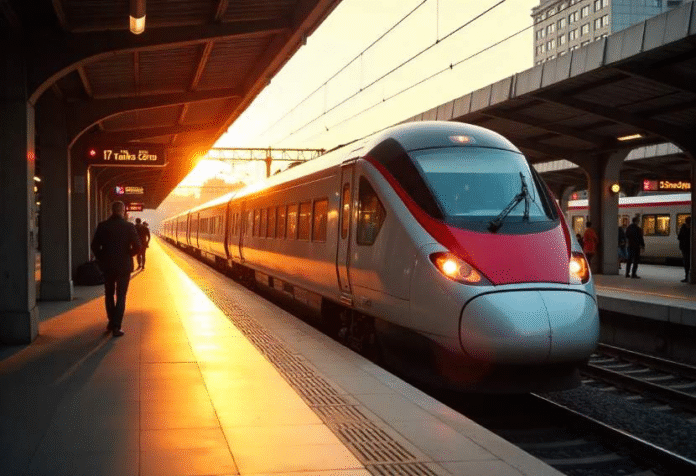European rail travel is poised for a transformation with the signing of the Kensington Treaty, a landmark agreement between the United Kingdom and Germany that paves the way for direct high-speed passenger train services between London and key European cities, including Frankfurt, Geneva, and eventually Berlin.
Signed on July 17 by German Chancellor Friedrich Merz during his first official visit to the UK, the treaty marks a historic shift in cross-border mobility. The agreement is being hailed as a major step toward sustainable, connected, and passenger-friendly transport across Europe, offering an alternative to short-haul flights and their environmental toll.
London to Europe by Rail: A Greener, Faster Alternative
Central to the agreement is the development of non-stop rail services between London and several major European cities. Trains to Frankfurt are expected to take approximately five hours, while travel to Geneva will clock in at just over five hours and 20 minutes—competitive with air travel once airport transfers and security checks are considered.
“This deal will fundamentally change how millions of people travel,” said UK Transport Secretary Heidi Alexander, calling the initiative a flagship component of the government’s Plan for Change — a forward-looking transport strategy centered on sustainability and enhanced international connectivity.
These new routes aim to address growing demand for climate-conscious alternatives. With electric rail travel emitting significantly less carbon than commercial aviation, the services are expected to be a cornerstone of Europe’s green mobility goals.
Eurostar to Expand: Berlin on the Horizon
The agreement also breathes new life into Eurostar’s expansion ambitions. Known for connecting London with Paris and Brussels since the 1990s, the operator is expected to play a central role in these new cross-Channel routes. The addition of Frankfurt, Geneva, and Berlin would significantly extend its footprint and influence.
Berlin, in particular, represents the next frontier. As the UK-Germany Transport Taskforce now shifts focus to developing supporting infrastructure and border control systems, direct services to the German capital could launch soon after the initial phase. Once operational, these links will provide seamless access to one of Europe’s most culturally and politically significant cities.
Reimagining the Travel Experience
For travelers, the appeal goes beyond speed. Direct international rail services promise comfort, convenience, and accessibility. With fewer queues, less security hassle, and city-center-to-city-center service, the experience is expected to be significantly more user-friendly than flying.
Importantly, these trains will open access to historic cities for a broader range of travelers. With affordable pricing as a stated goal of the project, destinations like Geneva — home to international institutions and scenic alpine views — and Frankfurt — Germany’s financial hub — will become more reachable for leisure and business alike.
“Britain is stepping into a leadership role in European rail once again,” said Alexander. “This is not just about transport — it’s about reaffirming the UK’s role in a more united, sustainable Europe post-Brexit.”
A Turning Point for Europe’s Transport Future
The Kensington Treaty arrives at a moment when rail is regaining favor across the continent as both a practical and environmentally responsible form of travel. With rising awareness of climate issues and renewed investment in cross-border infrastructure, the new direct services are expected to redefine how Europeans move across nations.
As governments, rail operators, and engineering teams collaborate to bring the treaty’s vision to life in the early 2030s, the benefits for passengers are clear: shorter travel times, lower carbon footprints, and an end to the traditional reliance on short-haul flights.
The Road — and Rail — Ahead
While challenges remain, including logistical coordination, safety standards, and customs agreements, the momentum is building. The UK and Germany have made a clear commitment: to build a modern, connected Europe where rail once again takes center stage.With Frankfurt, Geneva, and Berlin set to join the list of cities accessible directly from London by train, a new era of cross-border travel is on the horizon — one that promises to be faster, cleaner, and more inclusive than ever before.











